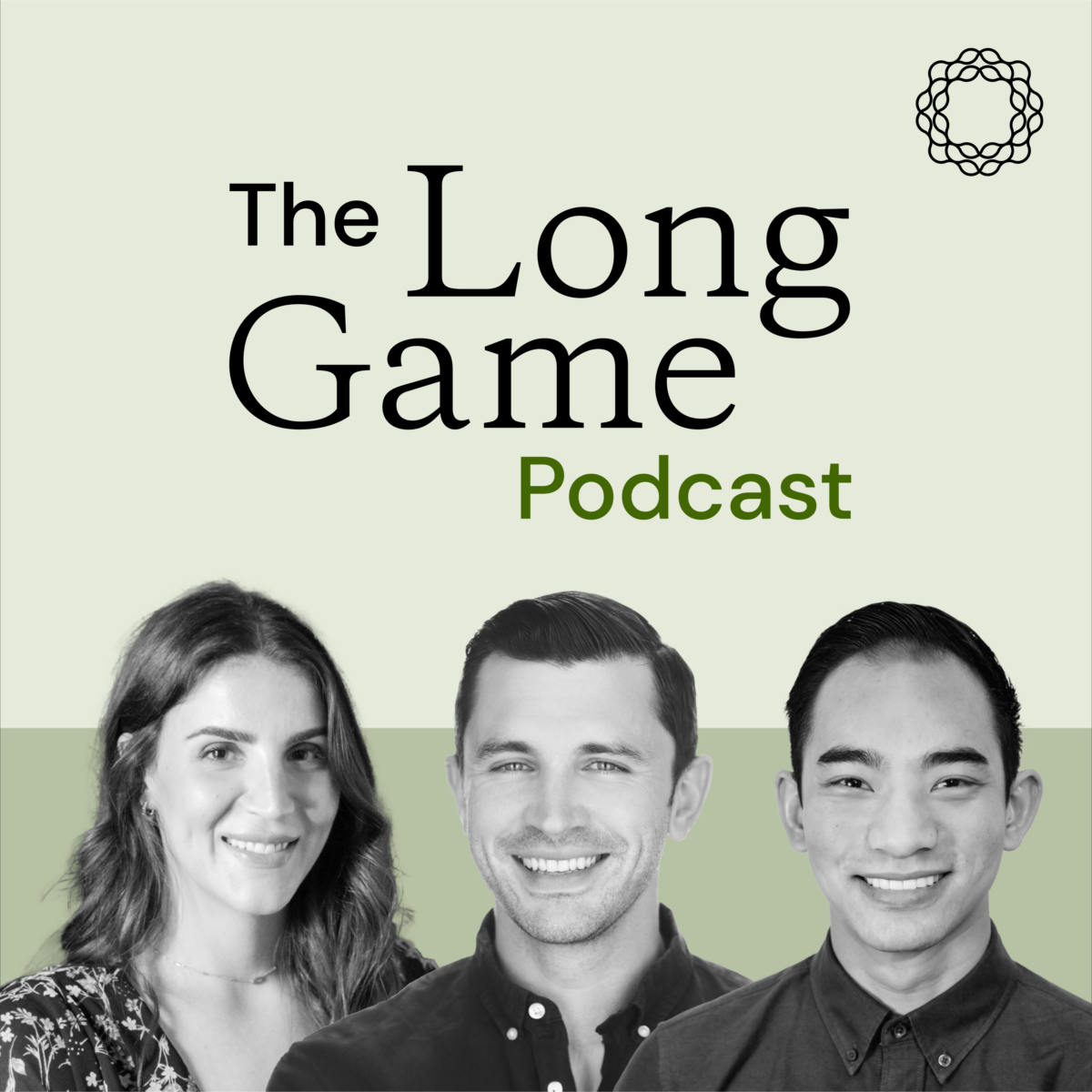
Before you know it there’s another SEO “growth hack” going around. But, like all trends, they come and go. Few strategies survive the test of time. And few people know them like Kevin Indig (ex-Shopify). In this Office Hours workshop, Kevin peels back timeless principles for how your growing company can approach SEO.
Topics
- Scaling SEO
- Integrators vs. Aggregators
- Growing your marketplace
- Aggregator and integrator approach to SEO
- SEO Growth loop
- Compounding effects of self-reinforcing growth loop
- Self-reinforcing growth loop
- How to compete in SEO
Show Links
Listen to the podcast:
Watch a video clip:
Key Takeaways:
Scaling SEO
04:22
If the company can scale SEO with inventory or user generated content, then SEO is more the output of many people.
“And it’s a bit more company specific if you’re talking about a company that we can dive deeper into these, into this mental model. But if you’re talking about a company that has to create the content themselves, an aggregator, it’s often a classic market. Set up and more of a center of excellence constellation. And then when it comes to aggregators or companies that can scale SEO with an inventory a eCommerce product, inventory or maybe user generated content there are things much, much better placed in product. And SEO is much more the output of a lot of different people. It might be enough to even have one SEO who consolidates all of this strategy and thinking, but then lots of people are working on SEO across board.”
Integrators vs. Aggregators
05:13
Ben Thompson’s Stratechery newsletter inspired the concept of integrators vs. aggregators.
“This concept was inspired by Ben Thompson from who writes this amazing newsletter called Stratechery it was not my brainchild. I transferred that over to SEO because I saw the same similarities. And to define that real Craig, an integrator is a company like Disney, for example. Disney is in interested. In owning every aspect and part of the relationship with their customers, and they don’t have scale effects in the sense that they have to produce all the content themselves. On the other hand, our aggregators and aggregators capture demand. To define the rules for supply. They usually do that with a good user experience. And a couple of examples could be Facebook, for example the they allow users to connect with each other, which creates a lot of demand and therefore suppliers don’t have power over demand anymore. It’s that the platform that channels demand has then power over suppliers. And when saying power over, it’s drives, drives the relationships. Not that this dictatorship, even though we can maybe argue about that. But it brings back to seo. The fundamental difference is who creates the content. In the case of aggregators, it’s not the company itself that creates the content. It would be in the case for G2, for example, where previously that’s an aggregator. They have user generated content in the form of software reviews, and they channel that bundle that, put that on a platform, make it accessible, and that means from a, to come back to your question technical seo, for example much more important than than content marketing. And then on the other hand, for integrators another company that worked at is Atlassian Atlassian. Even though they have an app marketplace and some aggregated playbooks, we’re gonna put ’em aside for now. For the most of it, they have to create the content themselves in the form of content hubs, blogs, and all that stuff. And they are content marketing, link building. Much more important. And I to think of this mental model because it makes it clear where you have to focus on and it makes it clear what the responsibilities of all the different people who work on SEO are.”x
Growing your marketplace
07:32
It’s possible that not every company can funnel into both, but many companies eventually can.
“That’s where it gets interesting, what I see a lot of times is that the companies grow in one with one approach to a certain level, and then they plateau. And that’s exactly the question where you wanna ask yourself, do we have what, how can we run an aggregator playbook or the other way around? And to come to a question, yes, it’s possible. Maybe not for every company, but lot of companies out there eventually can funnel into both. We spoke about Atlassian app Marketplace. Shopify, it was the theme marketplace. We also had an app marketplace. And there are other companies that do something similar. One example would be Figma figma started with a lot of self-created content, maybe on the blog, but then they open up their marketplace and now this marketplace is thriving and bringing in a lot of organic traffic. And there are playbooks of, where companies that start with different conditions can go into. But it’s a strategic question and that’s why I’m fascinated by this whole topic, cuz that’s, it can be much more impactful than thinking about how to maybe optimize a couple of articles or maybe do even better keyword research but these are these are specific important decisions that company have to make, oftentimes also related to product. There’s a big product component in this type.”
Aggregator and integrator approach to SEO
09:11
Aggregators and integrators are two different approaches to going to market from an SEO perspective.
“Aggregator plays are much harder to get off the ground once they’re running. They can be. They can scale to, much faster and maybe much higher than integrator playbooks. But none of them is better or worth, they’re different approaches to go to market from an SEO perspective. And importance is understanding when something what matters square, an example would be as an integrator. Sure there are some technical SEO things that you might wanna keep in mind, but technical SEO is not that impactful. And we might have to define what counts as technical SEO in the first place whereas as an aggregator is absolutely crucial and every decision you make from a technical perspective might scale in terms of impact the more you grow. They’re different dynamics.”
The power of growth loops
10:53
By optimizing every step along the way, an incredibly powerful and game-changing loop can be created that has a marginal cost for every new review close to zero.
“An SEO growth loop is a self-reinforcing system where , that consists of several steps and where the growth of one step leads to the growth of all the subsequent steps. An example of that would be NG Two’s case you have reviews on your platform. And in the beginning those reviews were quote unquote bought literally, somebody would go to a conference, pay users to leave reviews it was a very chicken and egg solve scrappy solve to the chicken and egg problem. And you got a couple of reviews on your platform. Those reviews, you expose ’em to Google you optimize your pages and all that stuff. And they start to rank and they start to, to bring in organic traffic. Now that some users discover those reviews, a small fraction of that traffic will also leave reviews and will enable the platform to create new pages. Could be new vendor pages, but could also be comparison pages or category pages for new software categories. And that’s a self-reinforcing loop that if. If you optimize every step along the way, the, in the right way that’s a self-reinforcing system that can create its own dynamic. It needs to be kick started, but once it’s up and going, the marginal cost for every new review is close to zero. And that is incredibly powerful, can be game changer for companies.”
How HubSpot built growth loops
12:24
HubSpot is a great example of how compounding effects can occur without self-reinforcing growth loops.
“There can be compounding effects even without a self-reinforcing growth loops. HubSpot is a fantastic example, hubSpot created a lot of fantastic content. Eventually that, that ventured into a guest posting program. But even before then as soon as SEO significantly contributed to the bottom line you can reinvest that money into new content and into hiring more people. It doesn’t always have to be a a self reinforcing system. It can be a system that, that brings in a lot of money, quote unquote, that you can then reinvest to do more SEO or better seo. But you’re absolutely right. Not every product has the potential to build. Reinforcing system. They have to be, there’s certain conditions that have to be true for that to work out.”
The best growth loops are self-sustaining
13:37
Self-reinforcing growth loops are beneficial, but not everybody can do it.
“Self-reinforcing growth loop is amazing to have, but not everybody can do it, which doesn’t mean. You don’t benefit from doing all of this well, and that there aren’t economies of scale where, or economics of scale better said, where things get cheaper. As you said, they get faster. You get more efficient and they need to because the more you grow, The harder it gets to grow more if you wanna keep up, In the beginning 50, 30%, no problem. But after a couple of years, growing 10, 10% year over year might be much harder to achieve, at least with the same playbook. Yes, you get more efficient over time, and you have to, you have to get more efficient in order to sustain your growth.”
How to compete in SEO
15:16
Companies should look for ways to lean into their competitive advantage.
“It is possible for you to compete. You first have to understand how you fit in and what player you are. There’s obviously a lot more opportunity in the long tail. Typically for long, for large platforms, monta is not as attractive as short hair keywords. And then sometimes you can also beat these players with better content and more back links. But the challenge that you have when you compete against large platforms, especially in aggregator, is that aggregators benefit from internal linking. And that, a lot of times companies look at back links when they compete against platforms which, is not a complete picture. Anyway, zooming back out. That’s the G two play. Zooming back out when we think about competitive advantage, there are different ways to compete it can be self-created content which we did as well eventually. . It can also be the frequency of content. It can be the depth of content. It can be bringing unique data to the content. It can be lead generation tools for example, instead of pages which also sometimes works for the same keywords. There are all sorts of ways to compete. It’s not always that you have to compete head to head. And I feel that’s something that a lot too many companies are not thinking about but at the end of the day, you can build and lean into a competitive advantage, similar to how you can lean into. On the business level as a whole.”
Get the Field Notes
Weekly learnings from working on B2B content & SEO for dozens of companies.



